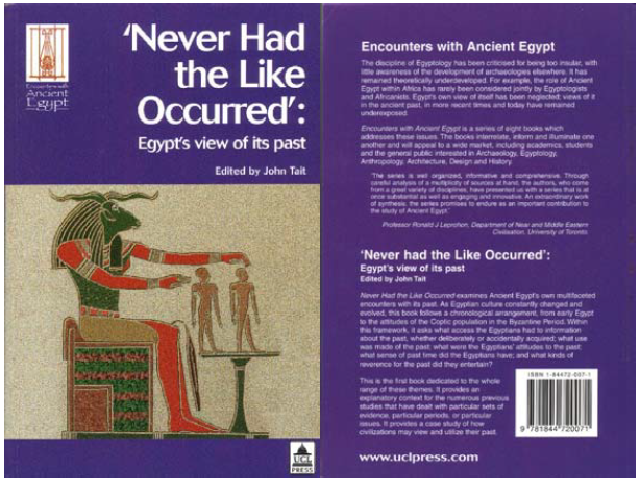Tait, J. Ed. 2003. ‘Never had the like occurred’: Egypt’s view of its past. – London, UCL Press (Encounters with ancient Egypt)
Abstract
'Never had the like occurred' is a phrase often encountered in ancient Egyptian texts. But is it just a standard expression? To what extent did the ancient Egyptians have knowledge about their past and what view did they have of it? These and other questions are addressed in the contributions in this volume of the series ‘Encounters with ancient Egypt’.
Usually, the topic is dealt with in a few lines. The Egyptians were a meticulously organised people, they kept records in temples and hence had written knowledge concerning the past. How much more complex the matter actually is, is shown by the variety of angles from which it is approached in the various chapters.
In general, all over the world the 'good old days' are remembered for their higher standards of values, wisdom, and cultural achievements. This was not different in ancient Egypt. The book is chronologically arranged, addressing the wooden reliefs of Hesy-Ra as examples of already deliberate archaising to reflect on better times gone by.
The Middle Kingdom is of course famous for its reputation as the Golden Era of Egyptian civilisation. The language, Middle Egyptian, was the classical language and script in which many texts, from instructional texts to hymns, have been written. Even the names of kings from this period were used in later times to lend authenticity. In the book two chapters are dedicated to this period, that seems to have had particular interest for the Egyptians. Read more...
Downloads




